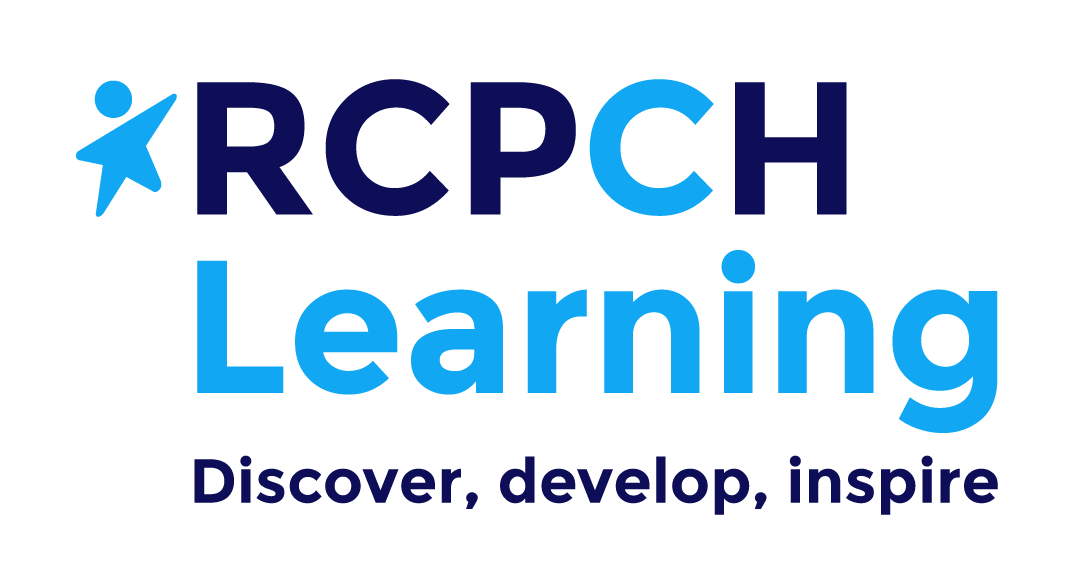Length
90 minutes
Target Audiences
- Paediatric and GP trainees
- A wide range of child health professionals, including nurses and health visitors
Self-paced
Work through the module at your own pace.When you have completed the module, you can return at any time to re-review any of the sections.
Free
Log in with your account
Course information
Welcome to this course on Paediatric Prescribing Principles.
Learning objectives:
- Understand the physiological changes that occur during childhood, which affect drug metabolism, including the impact of genetics and chronic diseases
- Explain what adverse drug reactions are, see some examples of when they may occur, and understand what to do if they are suspected
- Understand the principles of safe prescribing and drug administration including why errors may occur and methods to improve prescribing practice and patient safety
This eLearning module is aimed at all paediatricians, from trainee to consultant, and any health professionals with a role in prescribing drugs for children and young people.
After completing the module, users will be able to:
- Understand the physiological changes that occur during childhood, which affect drug metabolism, including the impact of genetics and chronic diseases
- Explain what adverse drug reactions are, see some examples of when they may occur, and understand what to do if they are suspected
- Understand the principles of safe prescribing and drug administration including why errors may occur and methods to improve prescribing practice and patient safety.
Drug Metabolism
- Describe the differences between paediatric patients and adults in relation to drug delivery, metabolism and action
- Explain the impact of developmental physiology on drug disposition across age ranges of life
- Describe the development of the major metabolic pathways in relation to age from prematurity through puberty
- Describe childhood diseases and effect on drug disposition
Adverse Drug Reactions
- Explain the meaning of an adverse drug reaction
- Describe the differences between drug toxicity in the developing child, and that in adults
- Describe the common clinical presentations of ADRs and be aware that a child’s symptoms may be explained by an ADR
- List medicines more likely to cause ADRs in children and about specific age related drug toxicity
- Gain knowledge of pharmacovigilance in paediatrics and be familiar with the yellow card system for reporting ADRs
Prescribing in Paediatrics
- Describe the issues surrounding prescribing in paediatrics, including:
- Why children are different to adults
- Factors involved in calculating drug dosages in children
- Selecting the correct formulation and route
- Licensing and off-label prescribing
- Describe the principles of prescribing errors in paediatrics, including:
- Why do prescribing errors occur? Individual versus processing errors
- Common and serious prescribing errors
- The benefits and risks of electronic prescribing
- Describe the methods which can help to minimise prescribing errors
Dr Elizabeth Starkey
Subject matter expert
Dr Philippa Prentice
Subject matter expert
Dr Ranjev Kainth
Subject matter expert
Creation and review log
| Creation/review | Date |
|---|---|
| Launch date | October 2016 |
| Review date | October 2019 |
| Review date | October 2022 |
As of 1st September 2016 the Revalidation and CPD team of the Royal College of Paediatrics and Child Health no longer allocates a number CPD credits to courses or events. The removal of credits associated with events allows delegates to record the educational benefit of the activity through written reflection, in contrast to quantifying the significance based on the time duration of the course. This is in accordance with changes made to the CPD Scheme guidelines published in April 2016.
Detailed information and scheme guidance can be found on the RCPCH website
When recording the activity, delegates should focus on the reflection and detail the following:
- What did you learn?
- What effect has/will the learning had/have on your current practice?
- What further learning or action, if any, is needed as a result of the original learning activity?
Should you have any questions regarding the removal of credits, please feel free to contact the CPD team
If you use the RCPCH CPD Diary, you can click here to visit the diary and record your learning: Log your learning on the RCPCH CPD Diary
Found an issue? Please get in touch with us:
Email us at rcpchlearning@rcpch.ac.uk